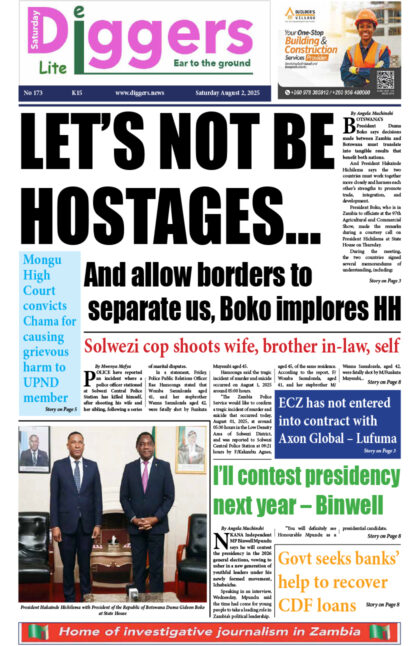THE kwacha’s recent appreciation against major currency convertibles has come in the wake of excess dollar supply, compounded with drastically reduced demand for imports, says the Bank of Zambia (BoZ).
According to financial market players, the kwacha rallied against major currency convertibles to breach and appreciate below the K18.00 per dollar psychological barrier for the first time since late May to trade at an average K17.90 per dollar.
The last time the local unit hit these levels was at the end of May, this year, where it traded at around K17.91 per dollar.
Responding to a press query, BoZ explained that the local currency had benefited from the drastically reduced demand for imports in the wake of the COVID-19 impact on the local economy, while the central bank had, on the other hand, intervened to stabilise the kwacha’s volatility.
“The BoZ intervenes in the foreign exchange market to dampen volatility in the exchange rate and also accumulate foreign exchange reserves. In the recent past, the foreign exchange market has been characterised by excess supply as demand for imports has drastically reduced, mainly due to the decline in economic activity attributable to the impact of COVID-19. It should be noted that over the past two quarters, the trade balance has been positive, largely reflecting a sharp contraction in imports, that outweighed the decline in exports,” BoZ stated.
“However, the BoZ has occasionally provided liquidity to the market through outright sales of foreign exchange to commercial banks, especially for energy related imports. This is intended to smooth out the adverse effects of temporary large demand relative to supply in order safeguard macroeconomic stability. The BoZ has also purchased foreign exchange from the market, when conditions allow, to help build international reserves. More recently (from June 9, 2020), all the mining companies are now paying statutory obligations (i.e. not just mineral royalty taxes) in US Dollar to BoZ. The BoZ in turn provides the resulting kwacha to ZRA. In line with the exchange rate policy, the value of the Kwacha against trading partner currencies will continue to be market determined to reflect prevailing conditions.”
Traditionally, the kwacha strengthens in July due to mid-year corporate taxes, which fall due, dubbed the ‘July effect.’
The local unit did appreciate to hit the K17.90 per dollar ahead of the July 10 tax deadline, but has, however, started to depreciate back over the K18.00 per dollar mark owing to dwindling supply after most corporates have already made conversions for their taxes.
























